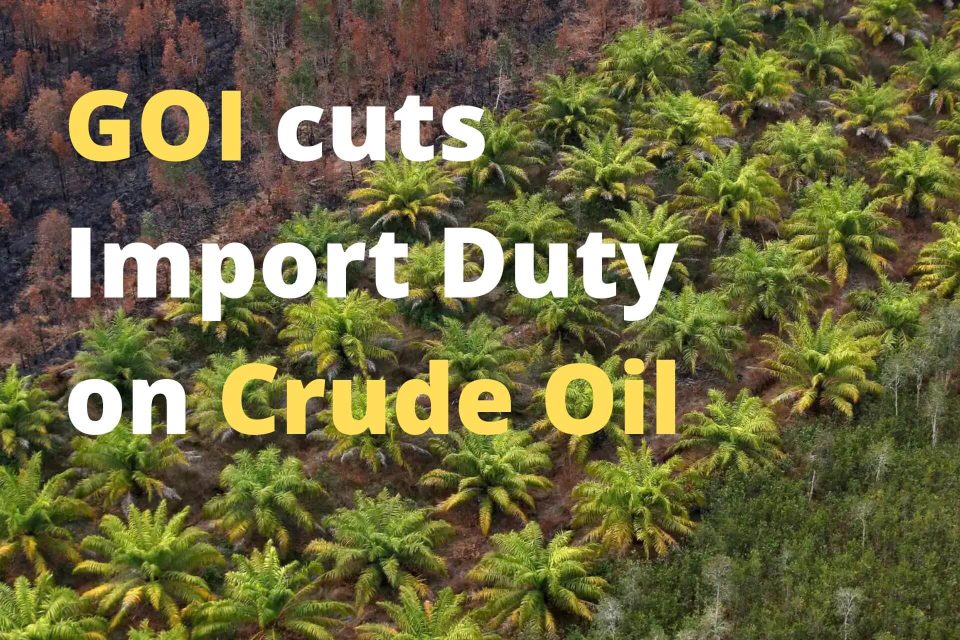India Cuts Import Duty on Crude Edible Oils to Ease Prices and Support Domestic Refiners
In a significant move to combat food inflation and stabilize domestic prices, the Indian government has announced a sharp reduction in the basic import duty on key crude edible oils. The decision, effective from May 30, 2025, slashes the duty on crude palm oil, crude soyoil, and crude sunflower oil from 20 percent to 10 percent. After accounting for the Agriculture Infrastructure and Development Cess and the Social Welfare Surcharge, the effective import duty now stands at 16.5 percent, down from the previous 27.5 percent. This development comes as a strategic effort to provide relief to consumers struggling with rising grocery bills while simultaneously revitalizing India’s vegetable oil refining sector.
The backdrop to this decision lies in surging edible oil prices that have severely impacted Indian households. According to data from the Ministry of Consumer Affairs in April 2025, edible oil inflation has skyrocketed by 17.4 percent year-on-year. Mustard oil has seen a staggering 25 percent rise, averaging over ₹170 per litre. Palm oil, a kitchen essential across India, has surged by 34 percent to ₹134 per litre, while sunflower oil and soyoil have increased by 30 percent and 18 percent respectively, with soyoil retailing at around ₹147 per litre. These steep price increases have made cooking oil one of the most burdensome items in household budgets, underscoring the urgency for government intervention.
Several global factors have contributed to this unprecedented spike. Crop damage in Latin American nations, particularly Brazil and Argentina, has severely affected soybean and sunflower yields. Concurrently, export restrictions from Indonesia and Malaysia—two of the largest palm oil producers—have tightened global supplies. Adding to the turmoil, the ongoing conflict in Ukraine and sanctions on Russia, both major sunflower oil exporters, have disrupted key trade routes and intensified market uncertainty. Given that India imports over 70 percent of its edible oil requirements, mainly from countries such as Indonesia, Malaysia, Thailand, Argentina, Brazil, Russia, and Ukraine, global disruptions have a direct and immediate impact on domestic prices.
The government’s latest move also signals a shift from its previous policy stance. In September 2024, the import duty on crude edible oils was raised from zero to 20 percent in an effort to protect Indian oilseed farmers and curb the inflow of cheaper imported oils. However, faced with escalating food inflation and pressure on household budgets, the Centre has chosen to recalibrate its approach. Analysts suggest this decision is also influenced by political considerations, as high food prices can negatively affect public sentiment, especially ahead of elections.
The edible oil industry has responded positively to the import duty reduction. Industry leaders, including B.V. Mehta, Executive Director of the Solvent Extractors’ Association of India, have welcomed the move, describing it as beneficial for both consumers and domestic refiners. With the duty differential between crude and refined oils now widened to 19.25 percent, refiners are expected to gain a competitive edge. This cost advantage is likely to improve capacity utilization across India’s refining units and contribute to lowering retail prices in the near future. The Indian Vegetable Oil Producers’ Association (IVPA) also expressed support, with its president, Sudhakar Desai, acknowledging the government’s responsiveness to industry recommendations and emphasizing the positive impact on the refining sector.
While the immediate benefits of the duty cut are clear—lower consumer prices and increased demand in the edible oil market—the long-term implications remain uncertain. Much will depend on how global supply chains evolve in the face of geopolitical unrest and climate-related agricultural challenges. If disruptions continue, price volatility may persist despite government measures.
In the current scenario, the Centre has sent a clear message: it is prepared to take decisive action to protect domestic interests from international economic shocks. Whether this import duty cut brings sustained relief to consumers and enduring revival for India’s edible oil industry remains to be seen. But for now, it offers a crucial cushion against mounting inflationary pressures.
For video news, visit our YouTube channel THE OLIGO.

